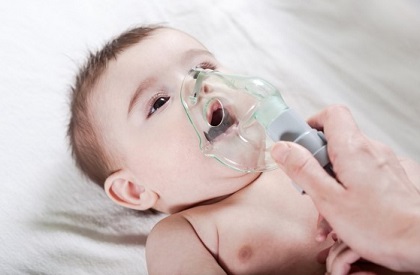Whooping Cough Crisis in Queensland, Australia Claims Infant Life Amid Record Outbreak
Nikhil Prasad Fact checked by:Thailand Medical News Team Nov 26, 2024 1 year, 2 months, 4 weeks, 16 hours, 22 minutes ago
Medical News: Australia is witnessing an unprecedented surge in whooping cough (Pertussis) cases, raising alarm among health officials as infection rates soar to record levels. The tragic death of a two-month-old baby in Queensland has spotlighted the urgency of addressing this highly contagious disease.
 Whooping Cough Crisis in Queensland, Australia Claims Infant Life Amid
Whooping Cough Crisis in Queensland, Australia Claims Infant Life Amid
Record Outbreak
Alarming Numbers and Vulnerable Groups
As of November 8, 2024, nearly 42,000 cases of whooping cough have been reported nationwide, according to the National Notifiable Diseases Surveillance System. Queensland has been hit particularly hard, with 12,500 cases recorded this year - a staggering increase from just 549 cases in the same period last year.
https://nindss.health.gov.au/pbi-dashboard/
Young children are the most vulnerable, with those under 15 accounting for 60% of cases in 2024. Babies face the highest risk of severe complications, including pneumonia, seizures, and brain damage caused by prolonged coughing fits. Tragically, 37 infants under six months have been hospitalized in Queensland this year, compared to 14 in 2023.
“This epidemic is the worst year for whooping cough in Queensland on record,” said Chief Health Officer Dr. John Gerrard. He added that the surge, which began in February, is showing no signs of slowing. “If anything, it’s getting worse.”
What’s Driving the Epidemic?
The outbreak is fueled by a combination of factors. Naturally, whooping cough cases peak every three to five years due to the disease's cyclical nature. However, this cycle has been exacerbated by the effects of the COVID-19 pandemic, which left many with weakened immune systems after prolonged isolation.
This
Medical News report highlights another critical factor: declining vaccination rates. Queensland Health data shows that maternal vaccination rates fell to 70.7% in 2023, down from 77.2% in 2020. Maternal vaccinations are crucial as they protect both mother and baby, reducing the risk of infection for newborns by 75% until they can be immunized at six weeks.
The Importance of Vaccination
Health authorities are deeply concerned about the drop in vaccination rates. “We want maternal vaccination rates at around 90%,” Dr. Gerrard emphasized. “This decline is deeply concerning. It’s vital that mothers are informed so they can make the best decisions to protect their children.”
The problem extends beyond maternal vaccinations. Rates among one- and two-year-olds have also declined by about 4% between December 2018 and September 2024. Some regional areas in Queensland report maternal vaccination rates below 65%.
Whooping cough vaccinations are recommended as part of a five-dose schedule for young
children, with booster shots for adolescents and adults every five to ten years. Additional vaccines are available for people over 65 and those at higher risk of severe illness. Despite these measures, the current outbreak underscores the need for improved public awareness and access to vaccination.
Global Trends and Changing Strategies
The decline in vaccination rates isn’t unique to Australia. Similar trends are being observed worldwide, prompting health officials to rethink their approach to vaccination campaigns. “The mantra in public health now is we should focus on informing rather than persuading,” Dr. Gerrard noted.
This shift comes at a time when public vigilance to prevent illness has waned. Dr. Gerrard pointed out that practices like testing and isolating when sick were more effective during the pandemic, which likely contributed to lower whooping cough rates at the time. “We’re doing the least we’ve done to prevent the transmission of infectious diseases in years,” he warned.
How to Stay Safe
Whooping cough spreads through respiratory droplets or direct contact with an infected person. To prevent the spread, health authorities recommend getting tested if you have symptoms and isolating until they subside. Regular vaccination is the best protection against severe illness and complications.
Parents and caregivers are encouraged to ensure that children receive their vaccinations on time. Pregnant women should also prioritize maternal vaccinations to safeguard themselves and their newborns.
A Call for Vigilance
The whooping cough epidemic in Australia serves as a stark reminder of the importance of vaccination and public health vigilance. With cases climbing and young children most at risk, the need for collective action is more critical than ever. Authorities urge everyone to stay informed, follow public health advice, and prioritize vaccination.
For the latest updates on the Whooping Cough crisis in Australia, keep on logging to Thailand
Medical News.
Read Also:
https://www.thailandmedical.news/news/winter-respiratory-viruses-surge-across-uk-rsv-flu-and-covid-19-threaten-to-overwhelm-hospitals
https://www.thailandmedical.news/news/covid-19-cases-rise-in-japan-for-the-first-time-in-three-months-driven-by-the-highly-contagious-xec-variant
